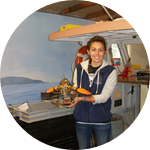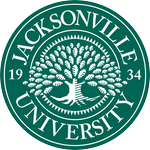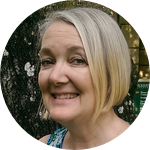About This Project
San Salvador is a remote Bahamian island with limited local anthropogenic impacts to coral reef ecosystems, resulting in near pristine reef communities. However, due to the growing tourist facilities on San Salvador, the future of these reef communities may have a different outlook. Our goals are to discover how these reef communities have changed in the past 17 years, identify the primary influencing factors to these communities, and increase our knowledge of these essential ecosystems.
Ask the Scientists
Join The DiscussionWhat is the context of this research?
Coral patch reef communities worldwide are showing a general pattern of decline and degradation due to a number of factors, including stress related mortality, diseases, and subsequent algal overgrowth. Caribbean reefs are among the most heavily impacted but San Salvador coral communities have shown remarkable resilience to adverse influences that have plagued numerous Caribbean reefs. The resilience may be related to San Salvador's location. It is a relatively remote Bahamian island, with low resident population and limited tourism. The tourism is increasing and this may further impact the reef communities. The last published assessment of these reefs was in 1998. My study will compare the state of reefs now with that previous work. The comparison will show degradation or improved health.
What is the significance of this project?
Coral reef communities can be regulated by either top-down (nutrients) or bottom-up (overfishing) processes. San Salvador has been repeatedly described as having "excellent water quality." Therefore, I hypothesize that fish populations are influencing San Salvador coral and algae reef communities, in a top-down process. The research will illustrate the degradation or recovery of San Salvador reef communities and whether or not changes in reef health are correlated with changes in the fish community.
Coral reefs are crucial ecosystems to sustaining island populations, as a food source for local fishermen and economically as area eco-tourism. Increasing our understanding of these reef communities will allow for better management and monitoring of these essential ecosystems.
What are the goals of the project?
Researchers will travel to the Gerace Research Centre on San Salvador, Bahamas to collect coral, algae, and fish community data via scuba diving. The data collected from five patch reefs will be compared to data collected from 1998 on the same reefs, and analysis of data will give researchers greater insight to community dynamics of these patch reef communities.
A goal of this research is to create baseline of reef community data that could continually be monitored by the many researchers or university students to track the trajectory of these patch reefs.
At a time when these essential coral reefs ecosystems are being adversely impacted by numerous factors, research identifying primary influencing factors on these reefs will help future recovery.
Budget
These funds will allow us to travel to San Salvador, Bahamas and conduct field research on patch reef communities. The trip will include collecting benthic and fish data in the field via diving. The funds will cover housing at the Gerace Research Centre on San Salvador, the cost to rent full tanks, the cost of transportation on San Salvador and the cost of field equipment to collect data.
Meet the Team
Team Bio
Tiffany Razo has conducted several coral reef community ecology studies in the Bahamas including assessing coral reef health on San Salvador patch reefs and assisting in studies on lionfish and A. diadema populations around Andros. Tiffany received her B.S in biology from the University of Saint Francis. She is currently a marine science graduate student at Jacksonville University.
Lee Ann Clements received her B.A. in biology from the University of Virginia, her M.S. and PhD from the University of South Carolina in Marine Science. Her research interests are focused around the physiology and ecology of echinoderms, specifically the process of regeneration in brittle-stars and sea-stars. In addition to her role as a Professor of Biology and Marine Science at Jacksonville University, Dr. Clements is the Chair to the Division of Science and Math.
Lee Ann J. Clements, PhD
Dr. Lee Ann J. Clement received her B.A. in Biology from the University of Virginia, her M.S. and PhD from the University of South Carolina in Marine Science.
Her research interests are focused around the physiology and ecology of echinoderms, specifically the process of regeneration in brittle-stars and sea-stars. She actively encourages undergraduate research since her early
experience at UVA was so rewarding. Projects include investigating the role of metallic pollutants in altering development, the effects of environmental variability on skeletal regeneration, the role of genetics in determining regeneration rates and the effects of ocean acidification on regeneration and growth of brittle-stars.
She teaches Oral Communication in the Biological Sciences, Biological Oceanography and Coral Reef Ecology. Her goal is to get upper-division majors to apply their basic core knowledge to real data and situations so they can function as professionals in their chosen field. She uses various methods including lectures, student presentations, laboratory experiments, library research, and primary literature reading with discussion.
In addition to her role as Professor of Biology and Marine Science, Dr. Clements is Chair the Division of Science and Math.
Project Backers
- 49Backers
- 100%Funded
- $3,302Total Donations
- $59.43Average Donation


